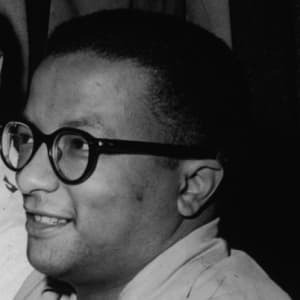
James Armistead
James Armistead was an enslaved African American, best known for his work as a spy during the American Revolution.
Synopsis
James Armistead was born into slavery in Virginia around 1748. With the permission of his master, Armistead enlisted in the Revolutionary War under General Lafayette. Working as a spy, Armistead gained the trust of General Cornwallis and Benedict Arnold, providing information that allowed American forces to prevail at the Battle of Yorktown. Armistead died in 1830, having successfully petitioned for his freedom in 1787.
Biography Profile
Born into slavery to owner William Armistead around December 10, 1748, in New Kent, Virginia. In 1781, James Armistead volunteered to join the U.S. Army in order to fight for the American Revolution. His master granted him permission to join the revolutionary cause, and the American Continental Army stationed Armistead to serve under the Marquis de Lafayette, the commander of allied French forces.
Lafayette employed Armistead as a spy, with the hopes of gathering intelligence in regards to enemy movements. Posing as a runaway slave hired by the British to spy on the Americans, Armistead successfully infiltrated British General Charles Cornwallis' headquarters. He later returned north with turncoat soldier Benedict Arnold, and learned further details of British operations without being detected. Able to travel freely between both British and American camps, Armistead could easily relay information to Lafayette about British plans.
Using the details of Armistead's reports, Lafayette and General George Washington were able to prevent the British from sending 10,000 reinforcements to Yorktown, Virginia. The American and French blockade surprised British forces and crippled their military. As a result of the Lafayette and Washington's victory in Yorktown, the British officially surrendered on Oct. 19, 1781.
Despite his critical actions, Armistead returned to William Armistead after the war to continue his life as a slave. He was not eligible for emancipation under the Act of 1783 for slave-soldiers, because he was considered a slave-spy, and had to petition the Virginia legislature for his emancipation. The Marquis de Lafayette assisted him by writing a recommendation for his freedom, which was granted in 1787. In gratitude, Armistead adopted Lafayette's surname.
After receiving his freedom, he moved nine miles south of New Kent, bought 40 acres of land, and began farming. He later married, raised a large family, and was granted a $40 annual pension by the Virginia legislature for his services during the American Revolution. He lived as a farmer in Virginia until his death on August 9, 1830.



